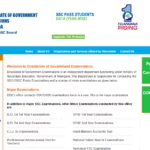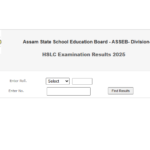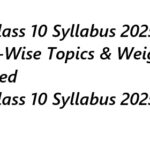Ultimate Guide to CBSE Class 10 Board Exam: Tips, Tricks & Preparation Strategies, The CBSE Class 10 board exams are an important milestone in a student’s academic journey. The pressure of performing well in these exams often feels overwhelming, but with the right strategies, preparation, and mindset, students can ace their exams with confidence. In this ultimate guide, we’ll cover everything you need to know to excel in the CBSE Class 10 board exam, including tips, tricks, and effective preparation strategies.
Understanding the CBSE Class 10 Board Exam
The CBSE (Central Board of Secondary Education) Class 10 board exam is a national-level exam that evaluates students on a variety of subjects, including mathematics, science, social science, English, and a second language. The board exams are crucial as they influence future academic choices, especially for students choosing their streams in Class 11.
The exam is conducted in two parts:
- Theory Exams: These include written tests for all the subjects.
- Practical Exams: For subjects like Science, Computer Applications, and others, practical exams are conducted separately.
Each subject has a set of guidelines, marking schemes, and subject-specific requirements. A proper understanding of these will help you structure your preparation efficiently.
1. Create a Realistic Study Plan
A good study plan is the foundation for effective preparation. Without one, it’s easy to lose track of time and miss out on important topics. Here’s how you can create a realistic study plan for your CBSE Class 10 board exam:
- Assess your syllabus: Start by going through the CBSE Class 10 syllabus for each subject. Identify important chapters and mark the ones you find challenging.
- Divide your time: Allocate study time for each subject based on your strengths and weaknesses. Subjects like Mathematics and Science may require more time, while others may need less.
- Set daily goals: Break your study plan into daily targets. Set specific, achievable goals for each day, such as completing one chapter or solving a set of problems.
- Include breaks: Make sure to take regular breaks to avoid burnout. A good rule of thumb is to study for 45-50 minutes, followed by a 10-15 minute break.
2. Focus on NCERT Textbooks and Sample Papers
NCERT textbooks are the most important resources for your CBSE Class 10 exams. They provide all the concepts, theories, and examples you need to understand the syllabus. Many questions in the board exam are directly based on the content of these books.
- Read thoroughly: Ensure you read and understand each chapter in your NCERT books, especially the exercises at the end of the chapters. These exercises will help reinforce the concepts.
- Use sample papers and previous years’ papers: Practicing sample papers and previous year’s question papers is one of the best ways to prepare. This will give you an idea of the exam pattern, marking scheme, and types of questions asked. Solving sample papers also helps improve your time management skills and boosts your confidence.
3. Time Management During Preparation
One of the key strategies for excelling in the CBSE Class 10 board exam is effective time management. Managing your time wisely during preparation will ensure that you can cover the entire syllabus and revise before the exam.
- Prioritize difficult subjects: Focus on the subjects or chapters you find most challenging first. This way, you give more time to the areas that need the most attention.
- Use a timer: Set a timer for each study session to keep yourself focused. Use the Pomodoro technique – study for 25 minutes, then take a 5-minute break, repeating the cycle.
- Avoid procrastination: It’s easy to procrastinate, but the earlier you start, the better. Set deadlines for each topic and stick to them.
4. Revision: The Key to Retention
Revision is a crucial part of exam preparation. The more you revise, the better your chances of remembering the key concepts during the exam.
- Create notes: While studying, make concise notes of important formulas, definitions, and concepts. These notes will help you quickly revise before the exam.
- Focus on important topics: Some topics have more weightage in the exam. Make sure to revise these topics multiple times to ensure you don’t miss out on anything important.
- Revise daily: Set aside time every day for revision, especially towards the end of your preparation. This will help reinforce what you’ve learned.
5. Practice Makes Perfect
Practice is essential for subjects like Mathematics and Science, where applying concepts is key.
- Solve previous years’ papers: Solving question papers from previous years will familiarize you with the format and give you an idea of the exam pattern. Try to solve these papers within the time limit to improve your time management.
- Mock tests: Take regular mock tests to assess your progress. This will help you identify weak areas that need more attention and help improve your exam strategy.
- Focus on problem-solving: For subjects like Mathematics and Science, practice solving problems from different chapters. The more you practice, the better you will get at solving complex problems quickly.
Recent Posts
6. Stay Healthy and Manage Stress
Preparing for the CBSE Class 10 board exams can be stressful, but it’s essential to manage stress and stay healthy throughout the preparation phase.
- Get enough sleep: A well-rested mind is more productive. Ensure you get 7-8 hours of sleep each night to stay refreshed and focused during your study sessions.
- Eat healthy: Eating a balanced diet is crucial for maintaining energy levels. Include fruits, vegetables, whole grains, and proteins in your diet.
- Exercise regularly: Physical activity can help reduce stress and keep you energized. Even a short walk or stretching exercises can make a big difference.
- Stay positive: It’s important to stay positive and confident in your abilities. Remind yourself that hard work pays off, and stay focused on your goal.
7. On the Day of the Exam
On the day of the exam, it’s important to stay calm and composed. Here’s how you can manage your time during the exam:
- Arrive early: Arrive at the exam center well before the scheduled time. This will help you avoid any unnecessary stress.
- Read the instructions: Before starting the exam, read the instructions carefully. Make sure you understand the exam format, the number of questions, and the marking scheme.
- Time allocation: Allocate time for each section based on its marks weightage. Stick to the time limits for each section to ensure you don’t spend too much time on any one question.
- Stay calm and focused: If you don’t know the answer to a question, don’t panic. Move on to the next question and come back to it later if you have time.











Leave a Reply